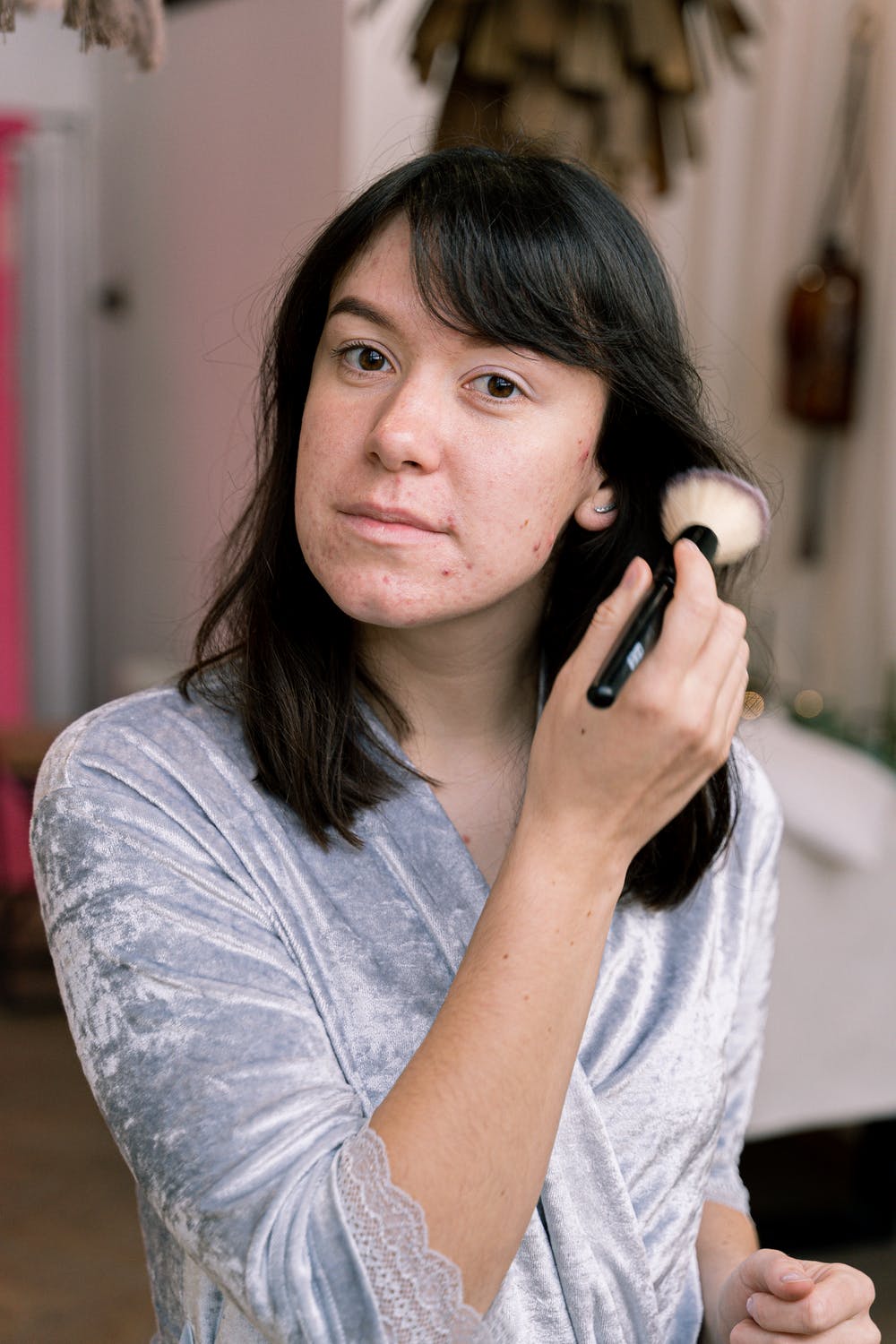Dealing with acne can be a challenging, stressful experience. Millions of people develop acne every year, and it is especially common for teens due to hormonal changes during puberty which cause a combination of excess skin oil (sebum) and inflammation of the hair follicles and the skin.
Thankfully, there are effective acne treatments to clear up or improve your acne within weeks.
In this post, we’ll share seven ways that can help you get that glowing complexion you really want.
#1 – Cleanse your face twice daily
Contrary to popular belief, acne doesn’t necessarily mean your skin is unclean or dirty – in fact, over-washing your face may irritate the skin even more.
However, it’s important to eliminate excess oil and dirt from your face (and other acne-prone skin) by cleansing it at least twice a day.
Most people prefer to use warm water and a mild facial cleanser or foaming soap. You should also wash your face after you sweat or after a workout or gym class. Sweat may irritate breakouts and result in a type of acne known as acne mechanica.
#2 – Lightly exfoliate regularly
Exfoliation can help get rid of excess dead skin cells, which build up and cause this annoying skin condition.
While some exfoliation can help clear up your skin, over-exfoliation can worsen breakouts or lead to greater inflammation. This happens when you eliminate too much natural oil from your skin – your skin will produce more oil that can clog your pores.
And so it’s best to use natural, light body scrubs at least once or twice a week and try to avoid chemical or harsh scrubs since they can aggravate spots. Also, avoid using brushes or mitts because they can house bacteria, which will then be transferred to your skin and can result in acne worsening.
#3 – Refrain from picking or popping pimples
It is incredibly difficult not to squeeze at pesky blackheads or pop zits. However, for the health of your sensitive skin, it is important to refrain or resist.
Popping or picking zits increases the risk of scarring or infection and exposes the pores to more bacteria. And so, if you’ve got a zit that really hurts, consider seeing a dermatologist. A dermatologist can perform specialised treatments to safely remove the zit while also minimising the risk of infection.
#4 – Eat healthy and drink plenty of water
Studies have found that low-glycemic-load diets are associated with an improvement in symptoms among acne sufferers. Excess sugar can also contribute to acne and so try to cut back on foods like dairy desserts, soft drinks, candy, and baked goods.
Getting essential nutrients from proteins, vegetable, fruits, and whole grains limit excess oil production and help the skin regenerate faster.
In addition, remember to drink lots of water as it helps to purify the skin and detoxify the body.
#5 – Get enough sleep
Sleeping helps to detoxify and relax your body. In some instances, lack of enough sleep can cause your body to release stress hormones and inflammatory compounds, which worsen acne. To stay healthy, aim for at least eight hours of quality sleep every night. Change your pillowcases and sheets at least weekly.
#6 – Manage your stress
Stress can cause inflammation that worsens acne. Meditating, doing yoga, exercising, taking a bath, reading, or relaxing before bed are some means of managing stress.
#7 – Talk to a dermatologist about prescription medication
Over-the-counter medication and some home remedies can effectively treat minor breakouts of acne. However, individuals experiencing severe acne (especially cystic or nodule acne), which just won’t clear with store-bought treatments, may need to consult a dermatologist. They will be able to give further skincare advice and prescribe effective medication to deal with severe acne. Be sure to consider options for cruelty free moisturiser australia and other locations as well.
And so, if your condition is causing you pain, spreading, or getting worse, see a dermatologist. He or she may prescribe an acne medication (like isotretinoin, tretinoin, antibiotics, tetracyclines, retinoids) to help clear your skin.
Summary
When it comes to clear skin, consider paying attention to what you put on your face – such as makeup, moisturisers, and cleansers – and what you do not – such as unwanted bacteria from dirty sponges, fingers, and brushes.

